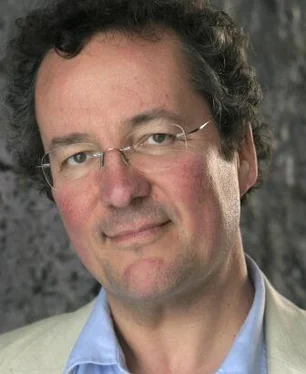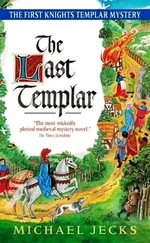‘I love you, Meg,’ was all he said, and Margarita blinked in surprise, but said nothing when she saw he was already asleep.
It was two days after leaving Óbidos that Baldwin at last rode up into the town of Tomar, feeling bone-weary and filthy after riding or walking throughout the hours of daylight.
Óbidos had been useful. It took him little time to find a horse, although he regretted buying this one in particular, and while it was being saddled, he had bought two loaves and a little dried meat, which had tided him over the journey. A friendly priest had given him a blessing for his journey and rough directions, and Baldwin had covered several miles before nightfall.
His horse was, however, a skittish, evil-minded nag, a pony which had been broken-winded, and whose nostrils had been slit with a knife for several inches to improve its breathing, an operation which had not improved its temper in the least.
So far as Baldwin was concerned, the thing deserved to be killed for dogmeat. Especially when they arrived. Out of kindness, before going to the fortress, Baldwin rode to the river, the Rio Nabao, to let the beast drink. There was a ford here, and he rode halfway over to let the animal cool down, but once there the froward beast began dancing, and he was forced to cling on for dear life.
In some ways he couldn’t blame it. Sitting in the saddle in the middle of the river, Baldwin looked up at the great square lines of the walls and the central block tower, wondering whether he would be recognised, whether he could be arrested. Perhaps the horse had merely picked up a little of his own nervousness. There was something particularly unsettling about this place, a great fortress in which once he would have been welcomed with open arms by all the warriors living within, but where now, with the destruction of his own Order and its replacement by the Order of Christ, he was unsure how he might be greeted. All he could be sure of was that if there were a priest in the place, the man would want Baldwin arrested.
There was a tavern at the riverside, and he bound his horse to a post, then sat outside with a jug of wine and some bread, dipping the bread in olive oil, and eating shavings of strong-flavoured, dried ham. The wine was delicious, just as he remembered it – pale, cool and thirst-quenching. When he had finished his meal, he felt invigorated and ready for the horse again.
Baldwin could see its eyes rolling wildly as he approached. He had to spend time calming the thing before he could release it, and even then he had to mount it in one smooth movement before it could make its protests felt.
Soon he was walking it up the roadway towards the fortress. The town’s streets were all narrow, but bright under the high sun. There were few clouds, and the breeze, although welcome, was still hot. Baldwin knew full well that his friend Simon would have found this atmosphere all but unbearable, judging by the way he had responded to the warmth of Compostela, but for Baldwin this was marvellous. He could feel the heat seeping into his body, and he felt as though, having absorbed this warmth for the last few days, he had stored up a resource of heat that could keep him through any number of cold, snowy, wind-swept Devonshire winters.
He looked up at the hill. From here, the castle was only visible as a massy square tower up on the right, with a wall that reached around the top of the hill, following a concave sweep. Baldwin’s mood darkened. It felt almost as though he was slowly approaching his own doom, and that on top of this hill, he would find himself accused and held as a renegade Templar, a man to be treated as a heretic, to be arrested, tortured, and burned to death. And all, perhaps, for a pointless mission.
With that thought, he stopped and dismounted, wondering why he had thought that coming here might solve anything. This castle was no longer a Templar site, it was a fortress for a new Order, and nothing to do with him. If there were people here who felt pious, it would be their duty to arrest Baldwin and hold him until the authorities could deal with him. He had travelled here remembering his old Order as though he could return to his youth, or recover some of the happiness he had known as a young man – as though mere proximity to a Templar site could ease his soul and undo some of the foul injustices of the last decade. Yet how could it? This place was nothing more than a series of blocks of stone. It had no soul, no life. All it was was a place in which men lived and worked. It was no better nor worse than the men who lived in it.
And looking up at it from the bottom of the hill, Baldwin suddenly wondered how pious and good the men of the new Order were. This castle was intimidating, a place built to protect those who lived inside, and to threaten those who lived without. Yet Baldwin had sworn to question the Portuguese. He had given his word to Munio when Munio gave him money to come here; he would not return without attempting to honour that vow. With a sigh, he led the horse up the pathway.
It was only a dirt track, and Baldwin could see through the trees as they thinned, taking in the view of the lush green lands on all sides. The ground was hilly, but not in the same way as Devon, where it was impossible to see much more than the next two hills from another. Here, it was possible to see for many miles, to far-off hills coloured blue with the distance, each plainly visible in the rolling countryside because none was of any great height. It also made the sky seem much broader, like the skies Baldwin had known as a youngster, when he had spent time in the islands of the Mediterranean. There too the sky had appeared larger, bluer, and more wonderful. In England, it was ever grey, he considered.
He could feel his heart begin to beat faster as he wound upwards, and suddenly found that on his right was a great mound of rock, on top of which was a wall, the first part of the castle’s outer defences. Each block was massive; daunting in its size. It made Baldwin wonder how men could have moved, shaped and installed such huge lumps of stone.
But pondering on such things was merely a ploy to delay his arrival. He turned his horse resolutely to the front. To reach the entrance, he must walk about the base of this wall of rock to a final flat wall, in which was a large arched gateway. With hesitant feet, he undertook this journey, and then stopped.
It was rather anticlimactic to see that the gate was wide open and that men stood laughing and lounging in the sun.
Afonso clattered along the roadway. There, downriver, was the great castle, and he burned with excitement at the thought of actually arriving there at last.
‘It is a good location for a fort,’ Sir Charles said. ‘Astonishing place. Good height. Difficult for anyone to scale that hillside. Plentiful water at the foot, which should mean that there is enough to fill a well, and the countryside here looks marvellously fertile. The peasants must be well-ruled. They don’t seem so lazy as English ones.’
There was a sniff from Paul. ‘Perhaps they are happier with their lot,’ he commented.
‘Paul is sometimes prone to such cheerful comments,’ Sir Charles said to Afonso. ‘He agrees with me, by and large.’
Afonso nodded, but he was only half-listening. For the most part, his mind was focused on the castle and his reception there. He had longed for the day when he would reach this place, having achieved his goal, and yet now there was that strange feeling of relief. Both relief and joy at success; balanced with the recognition that he had not in truth achieved all he could.
That old man, Matthew. His face kept returning to Afonso, that last expression of happiness – at his death. That curious acceptance.
Читать дальше












